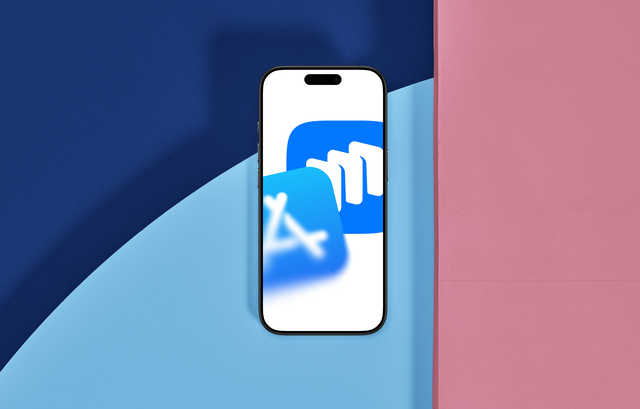An App Store ultimatum. New legislation will require Apple to open iPhones and iPads to Russia’s state-backed marketplace
Manage episode 491048304 series 3381925

The State Duma has adopted legislation in its third and final reading designed to force Apple to open iPhones and iPads to a “unified app store” for Russian users, breaking the App Store’s software monopoly. Meduza breaks down the legislation’s history and what to expect in Russia’s mobile-device market.
In July 2022, lawmakers passed a law ordering the creation of a unified app store for mobile devices. The following August, the federal government hired Russian Internet giant VK to build the store. At the time, VK had already launched its own mobile app store, RuStore. Today, RuStore operates on devices running Huawei’s HarmonyOS and Google’s Android, where it hosts apps that have disappeared from Google Play due to Western sanctions (such as banking software).
In the new consumer rights protection legislation, lawmakers singled out Apple as a manufacturer that imposes prohibitive conditions on customers and developers. The legislation specifically targets Apple’s restrictions on users’ ability to install applications from independent sources and make in-app purchases. RuStore remains inaccessible on iPhones and iPads due to iOS and iPadOS restrictions.
How Russia plans to enforce this
Any devices without certain pre-installed software (including RuStore) or with restrictions on these apps’ functionality will be considered defective, and consumers will have the right to demand “a proportional reduction in purchase price.” The new law bans any restrictions on the unified app store and apps installed through the store, such as limits on updates and notifications. The same goes for “special pricing requirements” and restrictions on third-party payment methods.
The law also includes language about restricting “the sale and use of certain types of technically complex goods,” which some analysts have interpreted as a potential ban on selling devices in Russia that don’t support RuStore.
Apple won’t be affected directly, but it might comply anyway
Apple doesn’t sell its products directly in Russia, but the Industry and Trade Ministry has approved the company’s merchandise for parallel imports, and Apple devices remain widely available in retail chains across the country. The new regulations will primarily affect these retail vendors, who unsuccessfully lobbied the government to abandon the new legislation. Vendors warn that the new legislation will lower their sales while fueling Russia’s underground market.
In the European Union, Apple has already relented under antitrust regulatory pressure, allowing developers in the bloc to offer mobile apps outside the App Store.
Apple has also acquiesced to past Russian regulatory demands. In March 2021, the company agreed to comply with requirements to offer users various Russian apps (for example, services from Yandex, VK, Mail.ru, and others) in the device setup process. Even after exiting the Russian market, Apple continues to fulfill some censorship orders, such as removing certain VPN apps from the App Store in Russia at the request of Roskomnadzor. The company even took down the mobile app for the news outlet Radio Liberty, which the Russian authorities have banned as an “undesirable organization.”
In fact, Apple still maintains its Russian subsidiary, Apple Rus, and it’s possible that the company will comply with the new app store requirements to avoid the same fate as Google’s Russian subsidiary, which now faces symbolic fines in excess of $23 undecillion.
iPhone but not forgotten
It’s very unlikely that iPhones will disappear from the Russian market. In the most extreme scenario, Apple devices may become unavailable or increasingly rare at major retail chains. At the same time, availability through the underground market will almost certainly continue.
Anton Gorelkin, deputy chairman of the Duma’s Committee on Communications and Technology, has insisted that the new legislation will not ban iPhone sales in Russia, calling such measures “excessive.” In November 2024, Gorelkin didn’t rule out noncompliance fines, but he also claimed that Apple itself is “interested in RuStore appearing on its gadgets.”
If the legislation wins the Federation Council’s approval and President Putin’s signature, the new regulations will take effect on September 1, 2025.
Story by Denis Dmitriev
Adapted for Meduza in English by Kevin Rothrock
64 episodes




